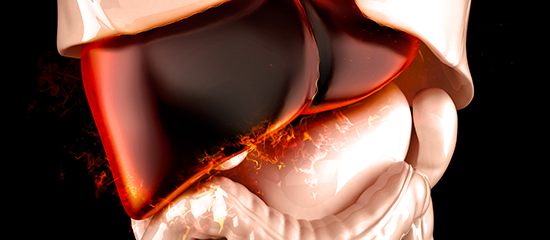cancer clinic
Cancer Immunity Clinic

01
Diagnosis
In case of the silent killer, liver cancer, early detection is very important. Until it progresses to end-stage, liver cancer has almost no symptom, so when it is detected, most of cases miss the ideal treatment period. That's why it is called silent killer.
Detecting liver cancer in early-stage is important, because 5-year survival rate of early-stage of liver cancer is 54.7%, but it drops to 8.9% when it detected as advanced.
It is diagnosed through diagnostic imaging and blood(tumor marker) test, biopsy.
02
Prevention
03
Symptoms
- 01
Feeling of fatigue Generalized weakness
- 02
Weight loss Loss of appetite
- 03
Feeling of pressure Pain
- 04
Jaundice,Bleeding
- 05
Ascites,Edema
04
Diagnostic Tests
| Type of Cancer | Examination Method | Advantages of Examinination | Disadvantages of Examination |
|---|---|---|---|
| Liver cancer | AFP(Alpha-fetoprotein) test | It is simple and cheap | It is less accurate. |
| HepaCheck | It is simple. | Accuracy is high.(92~96%) | |
| Liver ultrasonography | It is a painless non-invasive test with accuracy. | Results may be different depend on operator's skill and related knowledge |
04
Treatments
-

Liver Transplant It is the most ideal treatment of liver cancer by replacing a diseased liver with a healthy one. After transplant, complications from infection should be bewared by taking immunosuppressive therapy. 5-year survival rate after transplant is varied depending on cancer's stage. It decrease as stage progresses - about 80% for stage 1, about 50% for stage 2-, so early detection and treatment are important.
-

Hepatectomy (Liver Resection) It is the liver cancer treatment considered preferentially when the cancerous lesion is resectable and the liver function is deemed sufficient without cirrhosis or with mild cirrhosis. About 70% of hepatectomy cases show recurrence of live cancer and it mostly develops in the rest of the liver. Therefore, undergoing regular followup checkups is important.
-

Radiotherapy It is performed when surgical resection is not available and when the patients may not be radically cured by local treatment, arterial chemoembolization, etc. It is safely with low possibility of side effects when the tumor volume is less than one third of the total liver volume.
-

Immunocellular Therapeutics It is the liver cancer treatment considered preferentially when the cancerous lesion is resectable and the liver function is deemed sufficient without cirrhosis or with mild cirrhosis. About 70% of hepatectomy cases show recurrence of live cancer and it mostly develops in the rest of the liver. Therefore, undergoing regular followup checkups is important.



